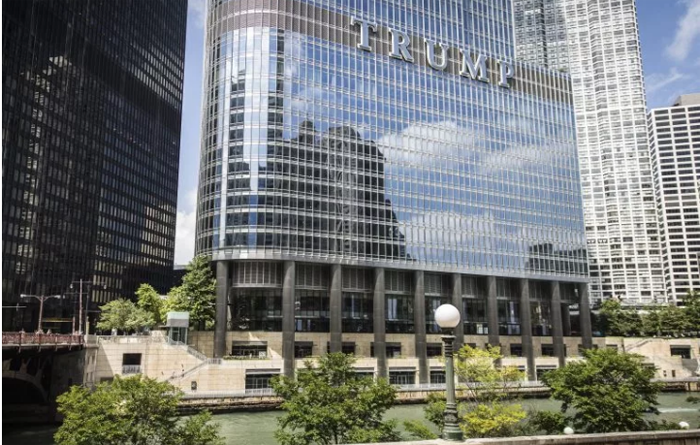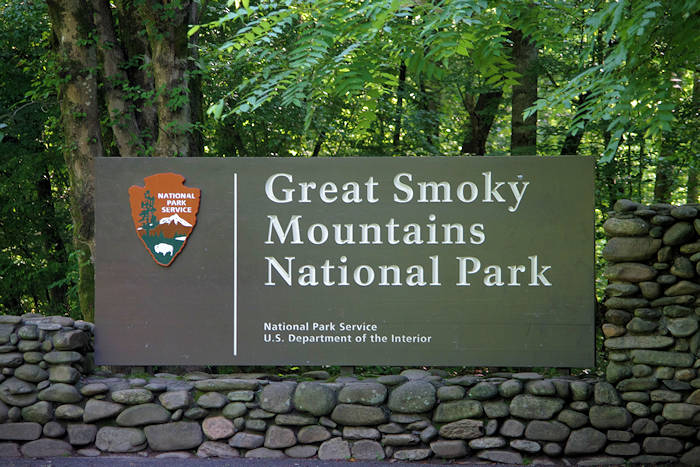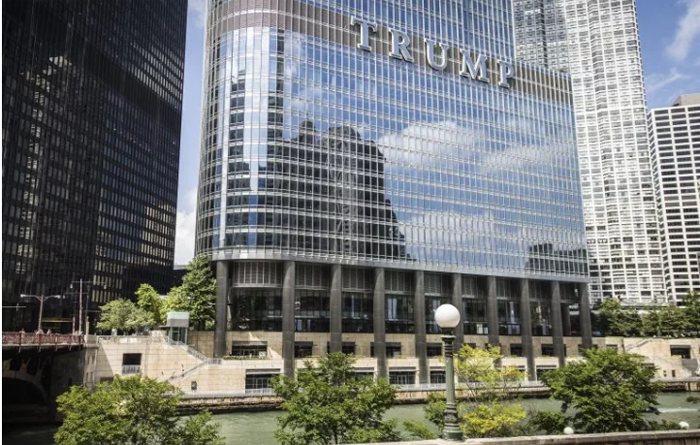
The Trump Tower in Chicago – right on the Chicago River with the street address just as fashionable, 401 N. Wabash. Photo by Private Officer News.
What emotionally blind conservatives never can see – an economic view of how and why it got better by increasing the wealth that conservation always builds
Excerpts from Austan Goolsbee’s NYTimes story titled Preserving the Wealth That Conservation Built / November 2, 2018
By Skip Clement
[dropcap]G[/dropcap]oolsbee is a professor of economics at the University of Chicago’s Booth School of Business. He’s also a Chicagoan and as such a qualified observer of his “town.”
What he noticed was that if you cleaned up the environment, like the Chicago River, what stood near or next to it increased in value and spawned more growth and investment. For example, let’s use Chicago’s Trump Hotel and Tower – it sits right on the river. Goolsbee says: “It’s an extraordinary location where city and nature and public spaces all come together. On the water, architecture cruises, party boats and kayak tours weave around one another. On its banks, the River Walk has drawn millions of visitors and hatched a series of restaurants and shops, including the Apple Michigan Avenue store, and multiple high-end condo buildings. The Trump building includes condominiums listed for as much as $2.7 million.
For much of the 20th century, most people didn’t want to live anywhere near the river. Companies dumped all manner of unpleasant things in the water. It stank up the city and poisoned its residents.
Environmental regulation and investment turned around the river. The cleanup was instrumental in making the neighborhood blossom and the economy boom
Remarkably, right wing conservatives, including those with claimed religiosity, and the Trump administration views conservation and the environment primarily through the lens of conflict — of business versus government.
In this view, regulating pollution or setting aside public land means the private sector must be losing — and the administration says that must stop. So the administration favors looser rules on pollutants like mercury and pesticides. It has revoked the status of prominent national monuments to allow mining and drilling on the lands and has tried to upend the Land and Water Conservation Act.” —- Goolsbee
For 53 years, the bipartisan conservation act supported more than 40,000 conservation projects including expanding national parks, wildlife refuges and migration corridors, historic battlefields and the like, funded by a small fee on offshore oil drillers.

It’s so much better when it’s public lands. I’m so much more capable of preservation than a political party.
Zero-sum thinking
Sometimes, making rules more favorable to business can lead markets to fail and destroy private sector value while cleaning up pollution or protecting public spaces can unlock value in the private sector and allow it to grow.
Closing a national monument to allow oil drilling — or terminating the Land and Water Conservation Fund — might help a company make more profit in the short run. But a vast array of benefits will also be destroyed. In a direct effect, hunters, kayakers, backpackers and visitors will stop going, and the Interior Department says these people spent $50 billion on recreation in federal lands last year.
But think about the broader harm done by this zero-sum mentality. Accessible public lands and vibrant wildlife bring people to small towns and rural areas. They attract tourists and give residents a reason to stay, and give an enormous boost to the private sector in the very places the administration is trying to help.
A shortsighted approach to public assets and the environment threatens to repeat at a national level the mistakes cities made when they industrialized waterfronts and spoiled what could have been the crown jewels of their landscapes. You would think that someone whose name is on a billion-dollar building on the banks of the Chicago River would understand that.” —- Goolsbee
About:
Austan Goolsbee, a professor of economics at the University of Chicago’s Booth School of Business, was an adviser to President Barack Obama. Follow Austan Goolsbee on Twitter: @austan_goolsbee.


